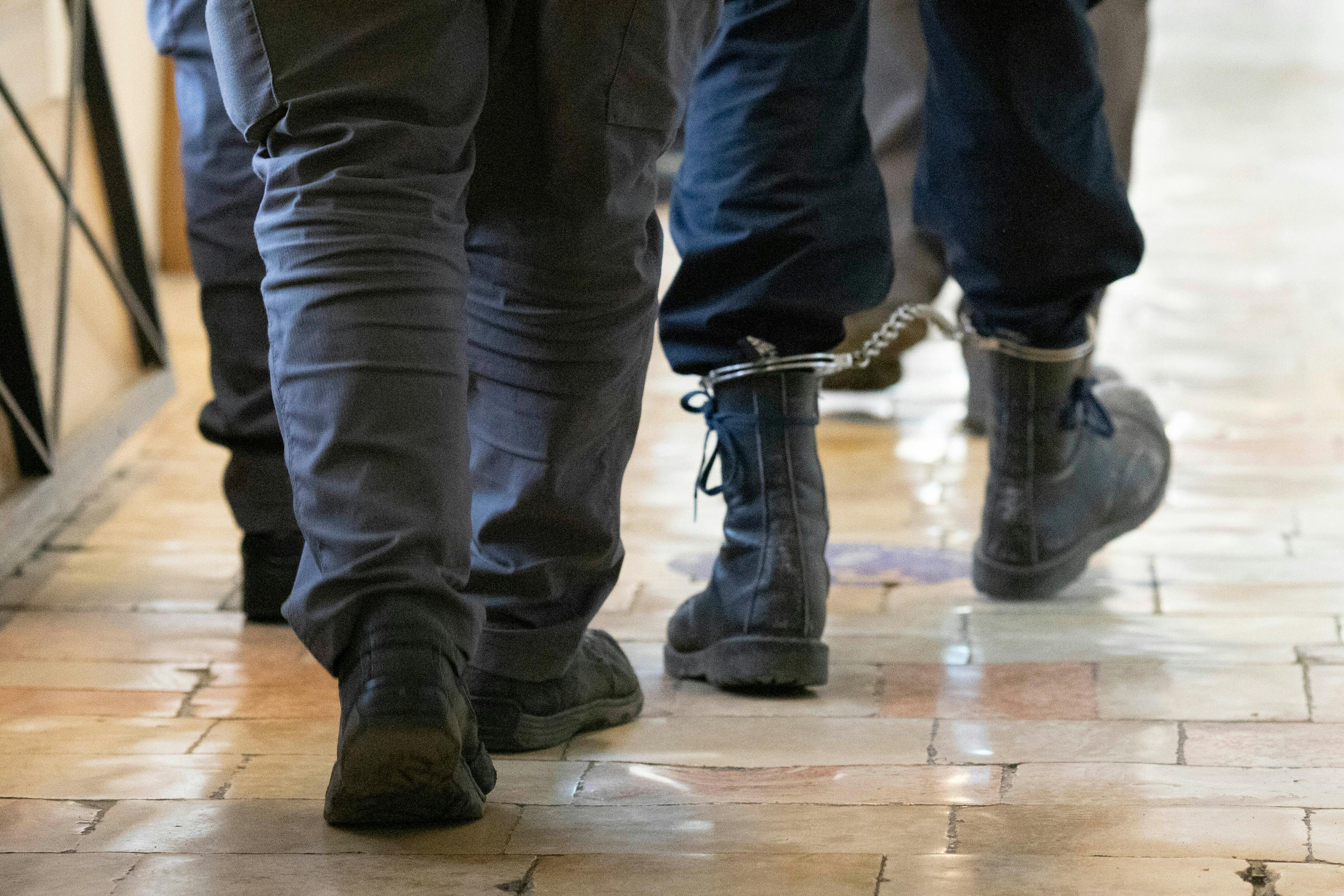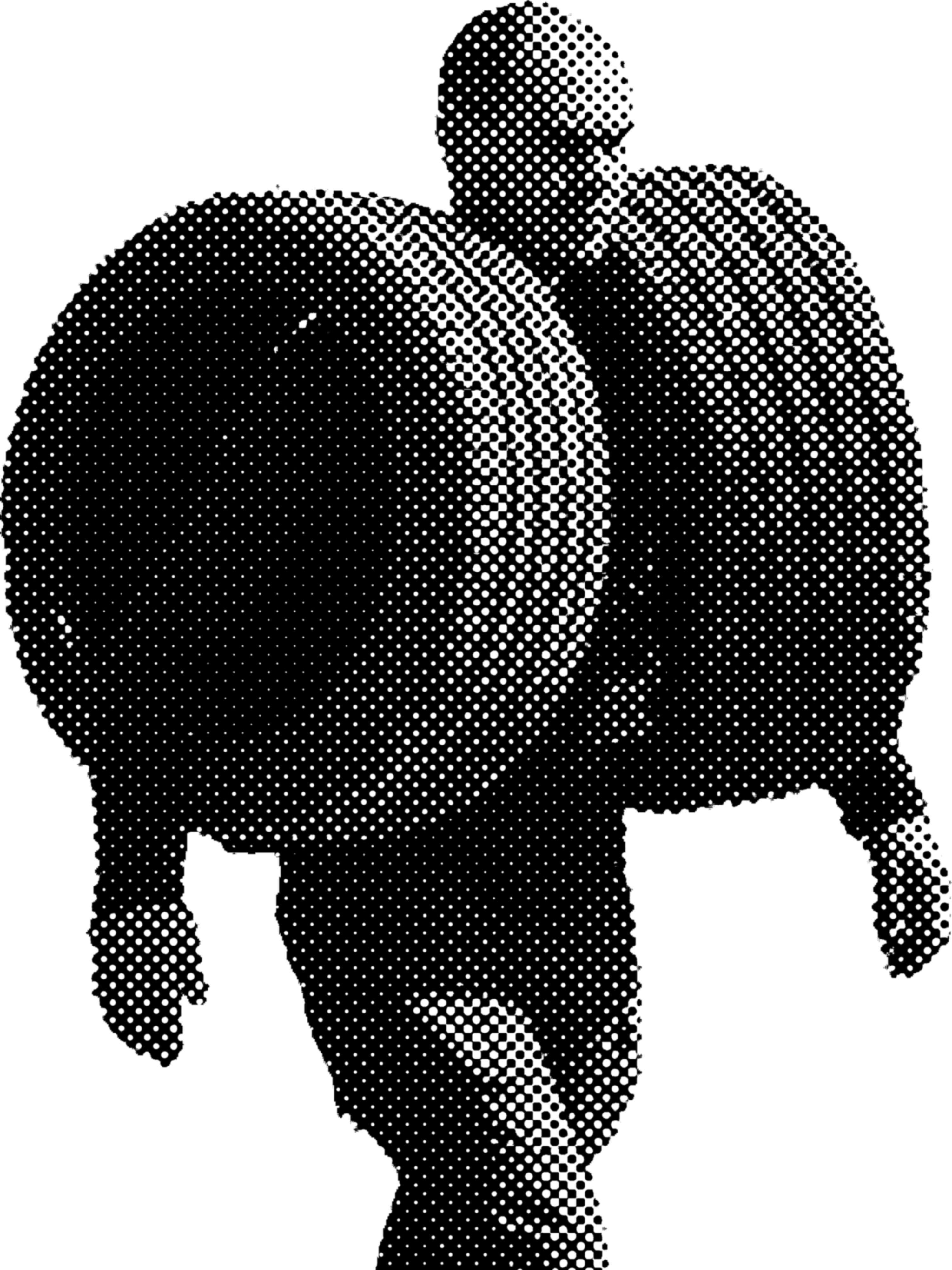About

Jonathan Pollak is a veteran anti-Zionist activist who’s been involved in the struggle against Israeli colonialism and Apartheid for over two decades.
Pollak was introduced to activism through the animal liberation movement, punk and anarchism in the 1990s. In the early 2000s, he was involved in One Struggle, an anarchist animal liberation group which emphasized intersectionality in the struggle against all oppression. He was later part of Anarchists Against the Wall, a group that was dedicated to joining and supporting the Palestinian popular struggle. When the Popular Struggle Coordination Committee – a Palestinian organization that served as an umbrella for regional popular committees – was formed, Pollak did legal support, media and advocacy work as part of its platform.
Over the years, he was involved in countless struggles, including those in the West Bank villages of Mas’ha, Budrus, Bidu, Nabi Saleh, Beita, Bil’in, Nil’in, and many others. He was also involved in struggles against gentrification as means of dispossessing Palestinians in Jaffa, where he is from, as well as mobilizing to support Palestinian political prisoners.
Pollak has occasionally written and spoken publicly on the need to join Palestinians in the struggle for liberation and against colonialism, on their own terms. In practicing this conviction, he suffered numerous injuries, including a serious head injury after being shot with a teargas projectile at a protest.
In 2019, after the extreme right wing organization Ad Kan published a post asking the public for help locating Pollak, he was attacked with a knife by two men who called him an anarchist
For several years, Pollak has been the target of persecution by Israeli right-wing groups, such as Ad Kan and Im Tirzu. In 2018 Ad Kan used an esoteric judicial procedure and filed a criminal complaint against Pollak and two other activists. He refused to cooperate and was wanted by the authorities for over a year. In 2019, after Ad Kan published a post asking the public for help locating Pollak, he was attacked with a knife by two men who called him an anarchist.
Over the years, Pollak was arrested countless times and spent five longer periods of time behind bars. His latest conviction was in 2021 after being accused of obstructing Israeli Border Police officers during a demonstration in Bethlehem in 2017. He again refused to cooperate or recognize the legitimacy of Israel’s apartheid courts, and was wanted for several months and eventually sentenced to 30 days in prison after having already been under arrest for 45 days. He was additionally handed a two months suspended sentence.
In 2021, Pollak received the Yeshayahu Leibowitz Award. In his acceptance speech (see video in Hebrew) he repeated his call for those who oppose Israeli Apartheid and colonialism to join the Palestinian struggle for liberation under Palestinian leadership and “march alongside the children of the stones and Molotov cocktails.” These same words were published a year earlier in the Haaretz newspaper and led to him being questioned for incitement to terror. He was questioned again on the same suspicions, this time for the speech, after a complaint was made by an extreme right organization. Both cases remain open pending an indictment.
Beita
Beita, which is a town near the city of Nablus in the West Bank. It has a long tradition of resistance to Israeli colonialism and was a hub of resistance during the First Intifada (1987-1993). In early 1988, some 20 men from Beita and neighboring Huwara were rounded up by the Israeli army after being identified by the Shin Bet, Israel’s infamous secret police, as being involved in stone-throwing incidents. They were bound with zip-tie handcuffs and had their bonessmashed by soldiers using rocks and batons. The soldiers were enacting the direct order of then Minister of Defense, Itzhak Rabin, who was also on public record calling for a policy of "breaking their arms and legs".
Later that year, Beita was the site of one the Intifada’s defining incidents, when a group of Israeli settler youth, led by settler extremist Romam Aldube, raided the town under the guise of holding a Passover field trip through it. After Aldube shot dead a resident of the village in the olive groves surrounding the town, the group continued into Beita itself, where they were met by locals who came out to defend themselves. The settlers were eventually disarmed by the people, not before two more Palestinians were killed by settler fire, as well as a 13-year-old settler girl, who was mistakenly shot by Aldube himself during the confrontation.
In the aftermath of the incident, there were widespread calls within Israeli society to "wipe Beita off the map". In retaliation, and despite the details of the incident already being clear to the military through operational debriefings, the Israeli army destroyed 15 houses in the village, and arrested all male residents, later deporting six of them to Jordan.
Thousands were seriously injured, hundreds were arrested and ten were killed by Israeli fire during these demonstrations, some of them by sniper fire.
In recent years, Beita has been the site of constant contention with the Israeli army and settlers, who try to establish settlements on stolen land belonging to the town. A local uprising that began in May 2021, after an Israeli colony had been established in the Jabel (Mount) Sabih area on the outskirts of the town. So far, thousands were seriously injured, hundreds were arrested and ten were killed by Israeli fire during these demonstrations, some of them by sniper fire. The uprising has managed to force an evacuation of the settlers, but only temporarily and with a government promise that they will, at some point, be allowed to return. After the settlers' removal, the place was used as a military base, and recently, settlers returned to occupy the houses erected there with government support.
The Current Case
The protest Jonathan was arrested at, on January 27, took place in the context of these demonstrations, when an Israeli Border Police force, a paramilitary unit of the Israeli police, raided the village after a demonstration. At the police station he heard two of the officers who arrested him coordinating their statements. He was then questioned for stone throwing (aggravated assault of police officers), rioting and obstruction of police officers.
When the court denied Jonathan's motion to be tried in an Israeli military court, like his Palestinian comrades are, he refused to enter a plea, and announced that he does not recognize the legitimacy of the court and will refuse to participate in the proceedings
Jonathan was held in jail for three weeks and then released into house arrest with electronic tagging due to deteriorated health. Six months after his release, Jonathan's house arrest was converted to nighttime curfew, which he remains under until the end of legal proceedings.
Israel has two parallel legal systems, which it uses based on ethnic-religious criterion - as a matter of policy, Palestinians are tried in draconian Israeli military courts, while Jewish Israelis are tried in civilian court under the much more lenient Israeli penal code. To expose the mechanisms of Israeli apartheid, Jonathan filed a motion with the court to have the proceedings moved to a West Bank military court, and be tried the same way his Palestinian comrades are.
When the court denied his motion on a false legal technicality, Jonathan refused to enter a plea, and announced that he does not recognize the legitimacy of the court and will refuse to participate in the proceedings.
See the statement Jonathan made in court announcing he will not cooperate• • •
For more background on Jonathan's case and prior arrests, see the press clippings section in the Media page
